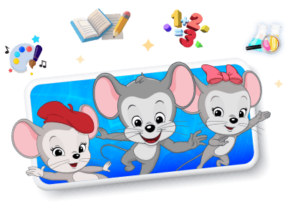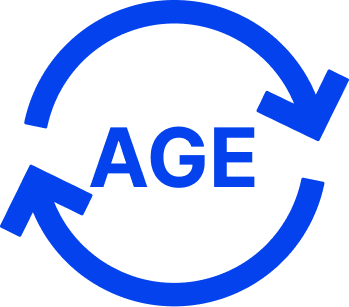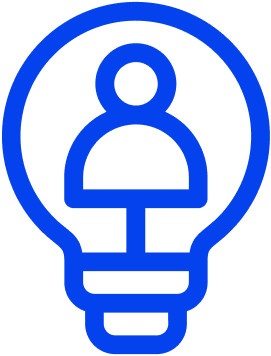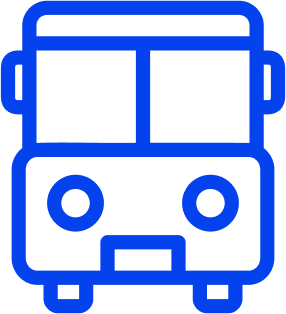North Carolina Homeschooling Laws and Resources
Whether you’re a seasoned homeschooler or just considering the option, this North Carolina homeschooling guide gives you some of the information you need to start a successful homeschooling experience.
Homeschooling in North Carolina Overview
Notice of Intent Required: Yes
1 Option for Homeschooling: Non-Public Education
Subject or Curriculum Requirements: Yes
Attendance Age Requirements: 7-16
Record-Keeping Requirements: Yes
Assessments or Evaluations Required: Yes
Proof of Immunization Required: Yes
Table of Contents
North Carolina Homeschooling Laws and Regulations
How to Start Homeschooling
Notice of Intent
Qualifications to Homeschool
Legal Requirements
Mandatory School Age
Subject Requirements
Record-Keeping Requirements
Evaluations and Assessments
Required Immunizations
Resources for Homeschooling Families in North Carolina
Public School Access
Homeschool Groups and Co-ops
Organizations and Associations
Sports Opportunities
Homeschool Field Trips
Special Education Homeschoolers
How Our Curriculum Can Help
Homeschool FAQ


How to Start Homeschooling in North Carolina
The North Carolina Division of Non-Public Education (DNPE) has worked hard to make homeschooling an approachable and enriching experience for families in the state.
Once you decide that homeschooling is right for your family, you’ll need to submit a Notice of Intent to homeschool through the DNPE website. As a home educator in North Carolina, you’ll also need to keep records and administer annual tests.

Submitting Your Notice of Intent to Homeschool in North Carolina
Before you can begin homeschooling, you must submit a Notice of Intent (NOI) to homeschool to the North Carolina Division of Non-Public Education (DNPE). You can submit an NOI each school year from July 1st through the end of April. You can access the online NOI through the DNPE website.
TIP: You must include specific things in your NOI, including your contact information as the Chief Administrator, diploma documentation, child’s age and name, and the address and name of the homeschool.
H3: Choosing a Homeschool Name
The state recommends choosing a simple name that would be appropriate on a high school diploma. Keep in mind that once you have filed your NOI with the chosen name, you cannot change it.
- The school name must be less than 30 characters.
- You may not use the words: Charter, college, elementary, grade, grammar, high, incorporated (or Inc.), junior, kindergarten, lower, middle, primary, public, residence, schooling, secondary, seminary, senior, the, university, or upper.
- Do not use the name of your curriculum in your school name.
- You cannot use The or A at the beginning of your school name.
If you submit your NOI without including a name choice, your homeschool will automatically be given a name using your last name (Example: Johnson School).

Qualifications to Homeschool in North Carolina
In North Carolina, a home educator must have a high school diploma or equivalent to qualify. There are no further certifications or licenses required to establish your homeschool. Home educators must also reside in North Carolina.

Legal Requirements to Homeschool in North Carolina
North Carolina has mapped out very specific requirements for homeschooling.
Home educators need to have a high school diploma or GED and must register their homeschool with the DNPE. You must also assess your homeschooled child each year through standardized testing.

Mandatory School Age in North Carolina
Compulsory attendance requirements kick in when your child is 7 years old. They will need to be enrolled in a public, private, or home-based school until they graduate or reach 16 years old.
TIP: Homeschoolers must attend school nine months of the year, but the exact amount of hours is not mandated.
The DNPE has created this attendance tracking document for your use. It is not mandatory to use it.

North Carolina Homeschool Subject Requirements
There are no subject or curriculum requirements when homeschooling in North Carolina. Home educators are free to choose an educational approach that connects best with their child and goals.

North Carolina Homeschool Record-Keeping Requirements
Home educators must keep a record of immunizations and exemptions, attendance, and any standardized testing results for each of their students. The state also recommends keeping a daily log of lesson plans, but this is not required.

North Carolina Homeschool Assessments and Evaluations
Home educators in North Carolina must test their students using a nationally standardized test or equivalent measurement at least once a year. The test you choose should assess their achievement in English grammar, reading, spelling, and math.
After the testing is completed, you’ll need to keep your child’s test scores “available” at the principal office of your homeschool for one year. This means that the scores should be easily accessible for any duly authorized representative of the DNPE who may want to inspect them during an annual review.
TIP: There are a variety of test options. Home educators are allowed to administer some of the tests, and you can connect with a homeschool group if you’re interested in a group testing environment. You can find a list of available tests and contact information here.

Required Immunizations for Homeschoolers in North Carolina
All students in North Carolina are required to be immunized or have a valid exemption on file. The state accepts both medical and religious exemptions at this time. Learn more through the North Carolina Department of Health and Human Services.
You will need this documentation when submitting your NOI. We recommend keeping your child’s immunization records as part of your homeschool file.

Resources for Homeschool Families in North Carolina
Homeschooling families often seek ways to enrich their children’s education, foster socialization, and find support throughout their homeschooling journey.
One effective approach is to join homeschool groups, co-ops, or formal associations. These networks help families tap into a wealth of resources and opportunities to connect with other homeschoolers, share ideas, and learn from one another. Find out more about these groups, sports, field trips, and public school access below.
Joining groups and organizations help homeschool families create a fulfilling and enjoyable homeschooling experience, while also building a supportive community of like-minded individuals who are on the same journey.

Public School Access For North Carolina Homeschoolers
There is not a law in North Carolina that grants homeschooled students the right to participate in public school classes and activities. Instead, the decision to allow homeschooler participation lies with individual schools, resulting in varying policies across different districts.
TIP: If homeschooled students wish to participate in public school classes or activities, they should contact their local school and inquire about their district’s policy.

Homeschool Groups and Co-ops in North Carolina
Homeschooling families in North Carolina can enjoy numerous benefits by joining or creating a homeschool group or co-op. These connections can help build a sense of community and enable children to form friendships with other homeschoolers.
TIP: Homeschool groups often organize group activities, such as field trips or physical education, which can enrich the educational experience. As a home educator, you can also connect with seasoned homeschoolers through in-person meet-ups or online support groups.
Homeschool co-ops are another excellent option, as they allow home educators with diverse talents to share the teaching responsibilities. Children can benefit from exposure to a variety of teaching styles and the opportunity to learn alongside other homeschoolers. North Carolina state law allows this style of homeschooling as long as all teachers have a high school diploma or equivalent.
To find a group or co-op near you in North Carolina, you can begin networking online or ask for recommendations from other homeschooling families. Here are some popular online groups to begin your search.
North Carolina Homeschool Support
North Carolina Homeschooling Help

Homeschool Organizations and Associations
Homeschooling families in North Carolina can benefit greatly by connecting with homeschool organizations and associations. These groups offer a variety of advantages, including access to events, legal assistance, information, and advocacy efforts.
TIP: Homeschool associations are more formal than homeschool groups or co-ops. To receive the full benefits of a homeschool association, expect to pay minimal membership fees.
Joining a homeschool association can provide opportunities to connect with other families and access valuable resources that support your child’s education. By becoming a member, you can access a supportive community of like-minded homeschoolers who can provide guidance and support on your homeschooling journey. North Carolinians for Home Education (NCHE) is the statewide homeschool association in North Carolina. The organization was founded in 1984 and helps protect homeschool rights.

Sports Opportunities for Homeschoolers in North Carolina
The statewide homeschool association, NCHE, has the goal of public school sports access for homeschoolers in North Carolina. At this time, there is no law granting that right.
Instead, they have established a sports program for homeschoolers across the state. The league offers all the sports you would find in a typical high school. If your child is interested in participating in sports, you’ll want to check out the NCHE Athletic Commission. There are many opportunities to participate in athletics as a homeschooler. Here are some great organizations offering homeschool sports in North Carolina.
| Group Name & Website | What Sports They Cover | What Area In North Carolina |
| South Charlotte Thunder Athletic Organization | Basketball, lacrosse | Charlotte |
| Sword Circle | Medieval swordsmanship | Garner Cary |
| Body and Brain Yoga | Yoga and Tai-Chi | Raleigh |

North Carolina Homeschool Field Trips
As a home educator, you have the flexibility to take your child’s education outside of the traditional classroom setting. What better way to do that than by going on a field trip? North Carolina is home to a plethora of educational destinations that are perfect for homeschoolers. Here are five unique field trip ideas to explore with your child in North Carolina:
Museum of Life and Science: This interactive museum is perfect for children of all ages. With exhibits on everything from space and weather to farm animals and insects, the Museum of Life and Science offers a hands-on learning experience to engage and excite your child.
Wright Brothers National Memorial: If your student is interested in aviation, the Wright Brothers National Memorial is a must-visit destination. Located where Orville and Wilbur Wright made their historic first flight, this memorial offers a glimpse into the history of flight and the Wright Brothers’ innovative spirit.
Biltmore Estate: This grand estate offers a glimpse into the opulent lifestyle of the Gilded Age. Take a guided tour of the mansion, explore the stunning gardens, and learn about the estate’s history and the family who built it.
Battleship North Carolina: This World War II battleship is a living piece of history. Take a self-guided tour of the ship and learn about its role in the war effort. The Battleship North Carolina also offers educational programs and activities for homeschool groups.
North Carolina Zoo: This massive zoo has over 1,600 animals representing 225 species. Take a guided tour, attend an animal encounter program, or explore the zoo on your own. The North Carolina Zoo also offers homeschool programs and special events throughout the year.
These are just a few of the many amazing destinations available to homeschoolers in North Carolina. Whether your child is interested in science, history, or animals, there’s something for everyone in this diverse and exciting state. So pack a lunch, load up the car, and get ready for a day of learning and adventure!

Special Education Homeschoolers
Families homeschooling students with special needs in North Carolina may find that there are few to no services available in some districts. This is because homeschooled students are considered nonpublic students and, as such, not entitled to public school designated funding.
North Carolina leaves it to the discretion of the local school district whether or not they will provide special education services to special needs homeschoolers. No state mandate requires public schools to provide services, but there also isn’t anything that prohibits them from offering the services if they so choose.
This can be challenging for homeschooling families who need services but live in a school district that doesn’t offer them. The best thing to do is contact the local school district’s special education director to learn if they provide services.

Support Your Homeschool with ABCmouse and Adventure Academy
Our digital learning programs are designed by curriculum experts to assist your homeschool and children ages 2 through 13. ABCmouse is a comprehensive online educational platform for children ages 2-8, while Adventure Academy focuses on children ages 8-13. Both programs provide access to lessons on reading, language arts, math, sciences, social studies, and more. Learn more about how each program can enhance your homeschool below.
ABCmouse and Homeschooling
ABCmouse offers over 10,000 learning activities and more than 850 lessons for children, plus a large digital library of books and educational puzzles, songs, activities, and worksheets. The program encourages self-paced learning with motivating rewards and includes progress tracking, which allows home educators to monitor time spent on certain subjects and the number of activities completed.

Then just $14.99/mo. until canceled
As a paid add-on to regular subscriptions, home educators can access the Assessment Center, which allows parents and caregivers to test children on their knowledge, determine successes and struggles, and receive recommended lessons based on assessments.
ABCmouse provides a robust curriculum that can supplement other early learning lessons. It’s trusted resource that’s been downloaded over 10 million times and has a 4.5-star average out of 831.4K ratings.
Adventure Academy and Homeschooling
Adventure Academy combines an interactive world with a curriculum covering reading, language arts, math, science, and social studies. With quests, games, and educational videos and activities, learning becomes an epic journey that motivates kids to explore various topics.
For homeschooling families, Adventure Academy offers an engaging, flexible learning experience that can supplement other educational materials. The program features thousands of activities created by curriculum experts and covers all major academic domains.
Parents and caregivers can choose academic difficulty levels and track each child’s progress, seeing time spent in Adventure Academy, activities completed, and subjects studied.
Adventure Academy emphasizes key topics such as reading comprehension, vocabulary development, mathematical operations, fractions, world geography, American history, physical science, life science, earth science, and scientific inquiry.
For more information, visit AdventureAcademy.com.

North Carolina Homeschool FAQ
How much does it cost to homeschool in North Carolina?
Homeschooling expenses can vary depending on your chosen materials, activities, and curriculum. However, many families can save money by learning about and taking advantage of the resources available to them.
TIP: Using the public library system, which can provide free access to a wide range of books, materials, and educational resources, can help cut down on homeschool costs.
Is North Carolina homeschool friendly?
North Carolina is known for being a homeschool-friendly state, with laws and policies that support families who choose to educate their children at home. The state offers a wide range of resources and support to homeschooling families.
In addition to state resources, North Carolina boasts a diverse and welcoming homeschool community. Overall, North Carolina’s supportive environment and resources make it an excellent place for families to homeschool their children.
How do North Carolina homeschoolers get a diploma?
When considering homeschooling in North Carolina, you may wonder about the process of graduating a homeschooled student. The answer is pretty simple–each homeschool sets its own graduation requirements.
Determining your homeschool’s graduation framework can be tough. Considering your student’s post-high school plans is often a good place to start. Once your student has completed your established graduation requirements, you can sign and award your own homeschool diploma.
TIP: If your student plans to attend college, research the specific expectations of the schools they may be interested in and curate their homeschooling path accordingly.
How do I enroll my child in public school after homeschooling in North Carolina?
If you need to enroll your child in public school, you should connect with your school district to understand their unique enrollment process.
While homeschooling, it is required to administer tests and keep records of academic proficiency. The school will most likely use these tests to determine grade placement.
The DNPE requires homeschoolers who are switching to public school to close their homeschool. Closing your homeschool is done through the same portal as filing your NOI.
Is unschooling legal in North Carolina?
In North Carolina, students must undergo annual testing each school year, but there are no strict requirements for tracking instruction time and teaching certain subjects. Unschooling is legal in North Carolina, but home educators should consider whether they can meet the state’s requirements in an unschooling format.
Legal Disclaimers
“The information and materials provided are for informational purposes only, and does not constitute legal, or other professional advice.
Any links provided to third-party resources are provided for convenience only. We do not sponsor or endorse, and are not affiliated with such parties, unless explicitly stated otherwise. We do not maintain or control these websites. Information presented on these sites may not be current or accurate – it is your responsibility to determine its accuracy and usefulness. By clicking on the links provided, you understand that you may be subject to additional terms and conditions and the privacy policies of such third parties.
Age of Learning makes no representation and assumes no responsibility for the accuracy of information contained on, or available through, this website, or its suitability for any purpose, and such information is subject to change without notice. You are encouraged to confirm any information obtained from or through this website with other sources, and review all information regarding any information with a trained legal professional.”


















